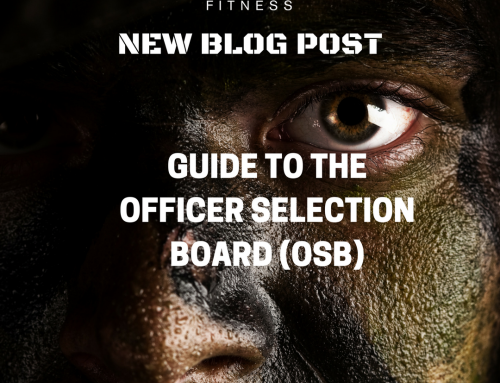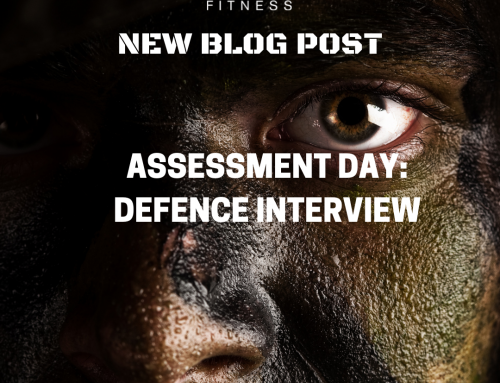The Assessment Day is arguably the most important component of the recruitment process. There are a number of activities that will be completed throughout the day all of which can be made considerably easier if you prepare yourself correctly. If you fail to do adequate preparation the DFR staff will single you out quickly from those that are prepared to put in effort. To start off our multi post series on the Assessment day the team has put together some general tips that are important to remember and take with you into the Assessment. Future Assessment Day posts will be broken down into more detailed advice on each component of the Assessment day.
To some, the advice provided may seem unnecessary. However, a big difference between “good” soldiers, sailors, airmen and “bad”(lids, lingers, jack, or whatever you want to call it) soldiers, sailors, airmen is often that the good military members are willing to put in that extra effort to ensure that the work is done right the first time. Whilst many of the tips are small and may seem irrelevant to you they will help ensure that you make a good first impression.
General Tips:
- Arrive Early.
- Wear business attire and be well presented
- The Assessment day is a job interview. Unlike the YOU session, this is a formal interview process and you will be expected to conduct yourself accordingly. Get a haircut, have your clothes ironed and shoes polished, wear conservative clothing, for males makes sure you’re cleanly shaven and for females ensure your hair is neat and tidy. As mentioned in our YOU session post the ADF is a conservative organisation, you do not want to stand out for the wrong reasons.
- Documentation
- Ensure you have completed all the required documentation.
- Ensure you bring all the required documentation with you including any extra documentation you might need or you think will help with you.
- If you do not have any of the required documentation ensure you have taken steps to get it and can explain to the DFR staff a good reason why.
- Have all documentation in a folder of some sort, do not be that person with their paperwork everywhere. You’ll look like an idiot.
- Confidence and Maturity
- At all times throughout the recruitment process show confidence. Not only is what you do and how you present yourself but in who you are. Stand tall, speak clearly, and have a firm handshake.
- Maintain eye contact when speaking with someone, sit up not slouched in a chair, communicate effectively and be confident that you are the right person for the job (we will cover more on this in the Assessment Day: Psychological interview and Defence interview blog posts).
- Speaking with confidence use terminology such as “I have”, “I often”, or “I’ve managed to”. Avoid talking about negatives and bring the positive out of a conversation where possible (this will be discussed more in the Psychological Interview blog post).
- Be mature about the topics you talk to other candidates and the DFR staff about.
- Show maturity in your application. Do you play a team sport? It looks good on the application so why not go join one. Do you spend your day watching TV or working and studying? Have you done any extra-curricular activities, i.e why not contact a group like Soldier On and see if you can do some fundraising.
- Work Experience
- Know your resume and be able to expand on what responsibilities you held in your previous roles by giving example. Get some paper and right down each job, school or sporting role or any other extra-curricular activity where you have been in a position of responsibility. This could be your role as a manager at work or your role as a member of a school or recreational sporting team. Write down an answer to the following questions for each job/role you have been in or are currently in:
- What are you responsible for?
- Do you show initiative? if so how?
- How do you work as a part of a team?
- How do you communicate problems?
- How do you solve problems?
- How do you manage stressful times?
- Know your resume and be able to expand on what responsibilities you held in your previous roles by giving example. Get some paper and right down each job, school or sporting role or any other extra-curricular activity where you have been in a position of responsibility. This could be your role as a manager at work or your role as a member of a school or recreational sporting team. Write down an answer to the following questions for each job/role you have been in or are currently in:
- Show interest in the ADF
- Learn as much as you can about the organisation, locations, structure, current and previous operations.
- Be enthusiastic about the job and what the work the ADF does.
- Do not talk about any objections you may have to any military action or strong views that may not align with those of the ADF; and
- Do not talk about violence or wanting to shoot or kill someone. If this is why you are applying then I would suggest that a position in ADF isn’t for you and to seek professional help.
- Be prepared for additional testing on the Day:
- Officer candidates for example, are often have to write another essay whilst in attendance on the day. Do not stress over this, this is more for the psychologist to gain a better understanding of you and is not a pass/fail assessment.
Remember the Assessment Day aims at testing your motivation, behaviour, and experience against the criteria of your chosen role. In order to be successful you must be willing to prepare yourself sufficiently.
Remember to read Part 2: Assessment Day – The Defence Interview
Remember to read Part 3: Assessment Day – The Psychological Interview
Note: The advice given throughout the Recruitment blog series is based of the ADF Fitness experience and may not be relevant to you. Our experience with the recruitment process, which occurred over different periods, will not necessarily match your recruitment process. This should not be read and used with any expectation that you will pass the recruitment process. By reading this blog post you agree to not hold ADF Fitness responsible. We disclaim any liability from and in connection with content on this blog.
Joining the ADF? We can help
Programs to suit all levels of training to help achieve your fitness goals and achieve tangible results












[…] General Tips […]